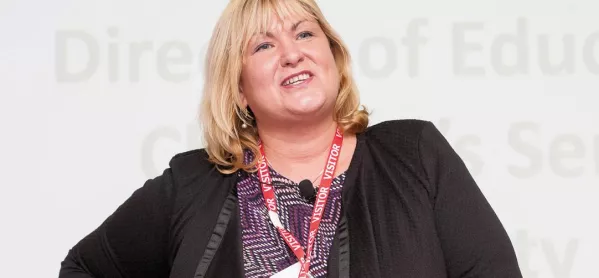Teacher shortages are limiting the number of subjects pupils can choose to study in schools, the head of Education Scotland has admitted to MSPs.
Struggles recruiting specialist teachers is a key problem, especially for schools in rural areas, Gayle Gorman told Holyrood’s Education and Skills Committee today.
The admission comes in the wake of a report published yesterday by the inspectorate into the freedom Scottish heads have to shape the curriculum in their schools. It found “almost all” did but difficulties recruiting teachers in “a majority of secondary schools” was “constraining curriculum developments”.
It also follows a survey by the committee of 86 state secondaries that found 72 per cent said difficulty recruiting teachers was constraining the subjects their pupils could study.
Background: Subject choice in schools to be reviewed by MSPs
Short read: ‘Narrowing’ of curriculum limiting pupil choice, politicians told
Research: ‘Inequity for students’ as secondary subject options narrow
Ms Gorman, who is the chief inspector of education and chief executive of Education Scotland, said some schools were finding “innovative solutions” to teacher shortages but conceded it was impacting on the choices on offer.
Giving evidence during an often-contentious committee meeting, Ms Gorman told MSPs “we recognise there has been a reduction in some schools in [the] curriculum offer” adding: “one of the major factors has been teacher numbers”.
Pressed on teacher shortages, Ms Gorman said: “That is an issue that every school - and particularly those in rural areas - have found and do find challenging.
“A school should design a curriculum to meet their learners’ needs.
“They need to be able to shape that with the best resources they have.”
Giving examples of how schools and colleges have tried to overcome the lack of subjects they are able to offer, she explained how some have collaborated to allow pupils to travel to different institutions for certain subjects.
“We see real innovation out of that hardship,” she said.
“We’re seeing schools setting up partnerships with employers to actually bring real-life employment opportunities and real-life modern techniques into the classroom to support that learning and offer different qualifications.”
Although Ms Gorman admitted it was a “minority” of schools developing ways to increase the choice available, she added: “We want to share that message so that it becomes a majority.”
Ms Gorman also claimed the choices that schools offer are not linked to areas of poverty, contradicting the results of a freedom of information request.
Explaining the findings, Green MSP Ross Greer said: “In areas where a school will have more than three-quarters of its pupils living in deprivation, the average offer at Higher level is 17 subjects.
“In an area where less than one in four of the children at the school is living in an area of deprivation, the average offer is 23 subjects.”
Ms Gorman argued it was other factors that were having an impact, saying “our evidence is showing that the deprivation factor hasn’t been as significant” as they expected.
“Because of the additional resources, [Scottish Attainment Challenge authorities] have been able to continue to offer - and actually quite innovatively in many cases - quite a wider range of curriculum and experiences within it,” she added.
“Our experience and our evidence are showing us that there are other factors and to use that one indicator would be unfair to the systems and schools involved.”
Ms Gorman was giving evidence to the committee today as it continues its inquiry into whether there has been a narrowing of subject choice in Scotland’s schools.





